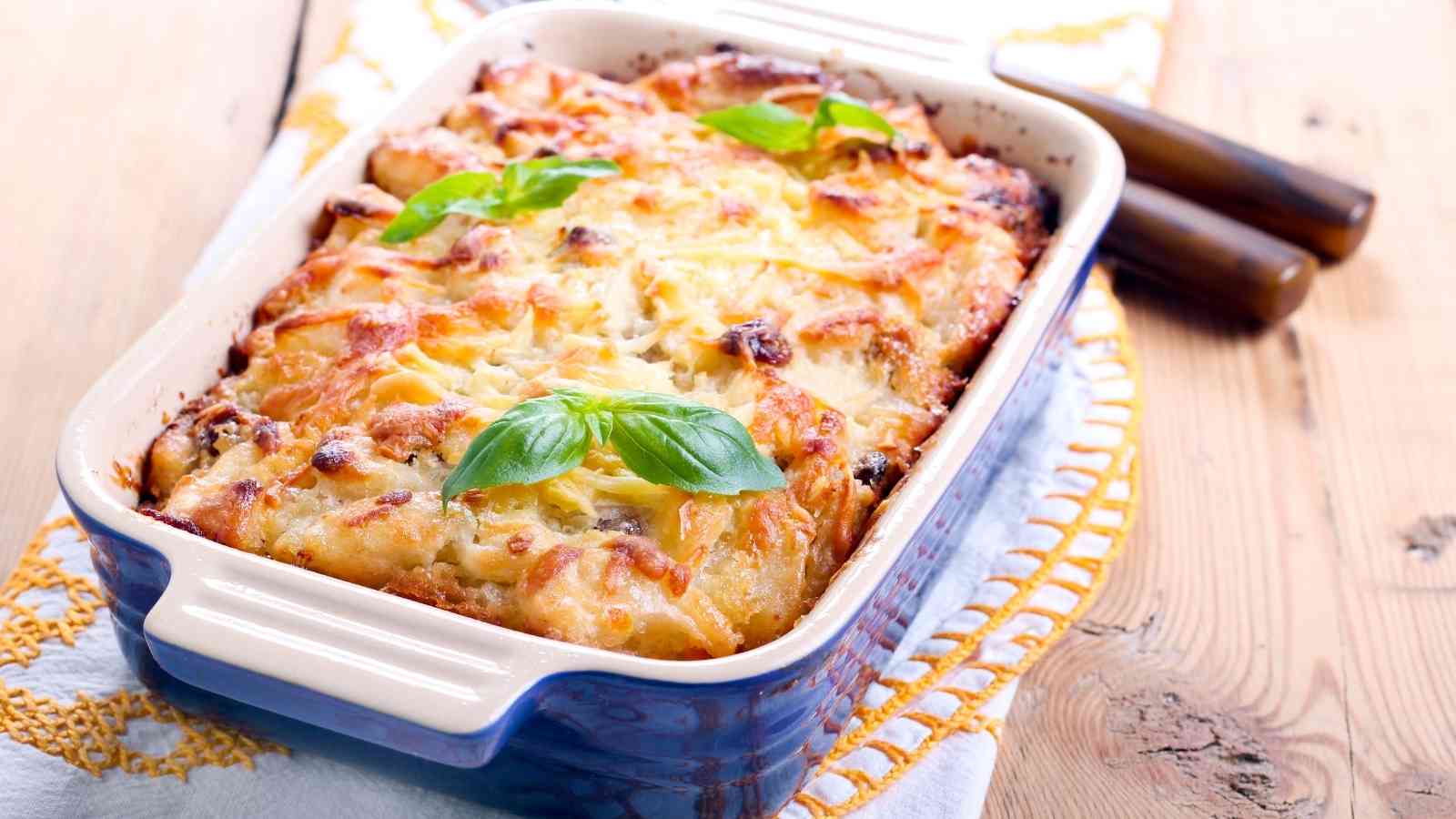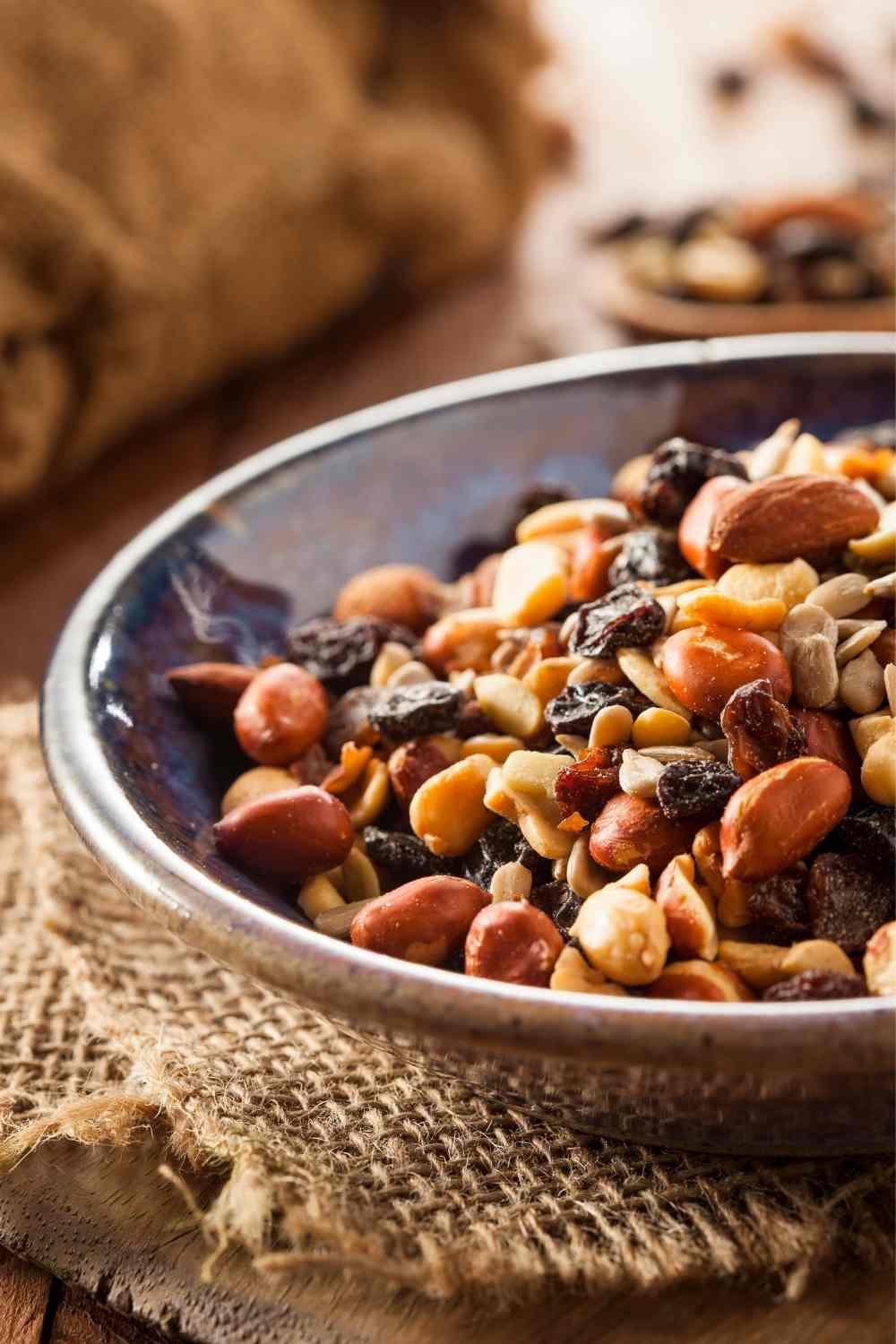Your stomach is grumbling despite the fact that you had a big breakfast before leaving for work one hour ago. Does this ring a bell? Pregnancy may greatly increase your appetite.
The problem is that you only have a certain amount of "additional" calories each day to work with, and they must be nutritionally rich.
We've compiled a list of the top healthy pregnancy snacks for expectant mothers. They're all high in vital pregnancy nutrients, simple to put up, adequately proportioned, and range between 200 and 300 calories. They're all delicious, too!
Jump to:
1. Apple and cheese
Most women don't get enough fibre in their diet to begin with, and pregnancy raises your daily fibre need to about 28 to 30 grammes (g). When you're battling with morning sickness in the first trimester (or maybe beyond) or that full and bloated sensation later on, it might be a difficult task. It's a good idea to include lots of fruits and vegetables in your diet to make sure you're getting enough fibre, and they'll also help you stay hydrated.

A medium apple has over 4 g of fibre and just 95 calories. Apples are deliciously crisp and quite portable. Furthermore, apple peel is high in pectin, a soluble fibre that may help with digestion.
Calcium is another essential pregnancy vitamin. Every day, expectant mothers need 1,000 milligrammes (mg) of this mineral. Calcium is vital not only for the health of your bones and teeth, but also for the development of your baby's bone structure. If you don't receive enough from diet or a supplement, your developing baby will extract it from your bones. Note that, although prenatal vitamins are rich with other essential minerals, they generally lack calcium, so don't expect yours to suffice.
Each 1-ounce slice of cheddar cheese has 200 mg of calcium, which is enough to meet 20% of your daily calcium needs. Stick to one or two slices since each one has roughly 110 calories and 9 grammes of fat.
2. Egg on an English muffin
You've undoubtedly heard a lot about vitamin D in the news. It aids calcium absorption in the body and has been connected to cancer prevention, immune enhancement, and inflammation reduction.
It's critical to obtain enough vitamin D throughout pregnancy to support your baby's developing bones and teeth, as well as to ensure that his or her immune system operates correctly outside the womb. Vitamin D is required by pregnant women in the amount of 600 IU each day. According to the Institute of Medicine, taking up to 4,000 IU per day is safe.
A single egg has 20 IU of vitamin D. The egg yolk contains vitamin D, so don't throw it out, but make sure it's fully cooked! Fortified milk (98 IU per 8 ounces), salmon (360 IU per 3.5 ounces), and canned tuna are all excellent sources (200 IU per 3 ounces).
Choline is also found in egg yolks, which is important for your baby's brain development and may help avoid birth abnormalities. Choline is required in the daily diet in amounts of 450 mg, of which 125 mg may be obtained from only one egg.
3. Homemade trail mix
Trail mix may be made in a variety of ways, but these recipes provide a pleasant blend of pregnancy boosters including calcium, vitamin D, and the mineral magnesium, which aids with bone and tooth development. Pregnant women need roughly 300 mg of magnesium per day (depending on their age), and a quarter cup of pumpkin seeds provides that amount. Cooked spinach, black beans, and Brazil nuts are other rich sources of magnesium.

Having trouble falling asleep at night? Most pregnant women have trouble sleeping at some time throughout their pregnancy. Natural melatonin found in dried sour cherries may help to enhance the quality and length of sleep. For a night snack, toss them into your trail mix or cereal.
Dark chocolate has been demonstrated to help decrease blood pressure by containing heart-protective cocoa flavanols. It also includes trace levels of the minerals magnesium, manganese, copper, zinc, and phosphorus, all of which are important for bone health.
Make almonds a part of your diet, particularly if you're not a huge fan of dairy. Almonds provide 76 mg of calcium per ounce, as well as 1 mg of iron and 3.5 g of fibre. And the fat they contain is virtually entirely monounsaturated fat, which is good for your heart. You may eat them whole or sprinkle them over yoghurt, cereal, or salads.
4. Greek yoghurt parfait
There are several reasons why Greek yoghurt has become the dairy aisle's darling. It's high in protein (making it demands twice as much milk), with roughly 14 g per 5.3-ounce single-serving container. It also delivers 15% of your daily calcium intake for the same reason. Probiotics are also included, which aid in the maintenance of a healthy digestive tract. All of this is topped off with a silky, creamy texture that makes even nonfat cheese seem luxurious.
Fresh blueberries on top of Greek yoghurt give approximately 4 g of fibre and just 84 calories, as well as an antioxidant boost. Two tablespoons (half an ounce) chopped walnuts contribute 93 calories, 1 g fibre, and healthful omega-3 fats. Walnuts also include the B vitamin biotin, which aids in the absorption of energy from diet.
5. Veggies or chips and guacamole
At some time throughout their pregnancy, most women experience swelling in their hands, feet, ankles, and calves. Excess salt should be avoided to avoid bloating. When you eat too much salt, your body hangs on to extra water in order to maintain a healthy sodium level. Drinking more water and consuming high-water-content foods can aid in the removal of excess salt from your system.
Cucumber and celery are both low in calories and high in water (96 and 95 percent respectively; carrots are 87 percent water). Guacamole is also high in potassium, a mineral that helps your body's cells maintain fluid and electrolyte balance. To reduce sodium, make your own by mashing a ripe avocado with lime juice, then adding chopped red onion and cilantro.
If you like your guacamole with tortilla chips, seek for chips that have fewer than 100 mg of salt per 1 ounce serving.




